Can Planting Salvia With Roses Prevent Black Spot? This Natural (and Beautiful) Trick Could Be the Secret to Healthier Roses
Black spot on roses is a common problem, but there's a surprising cure for this issue: underplanting with salvia. Let's take a look at how it works.
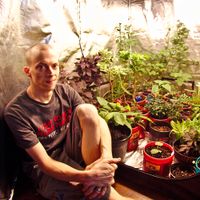
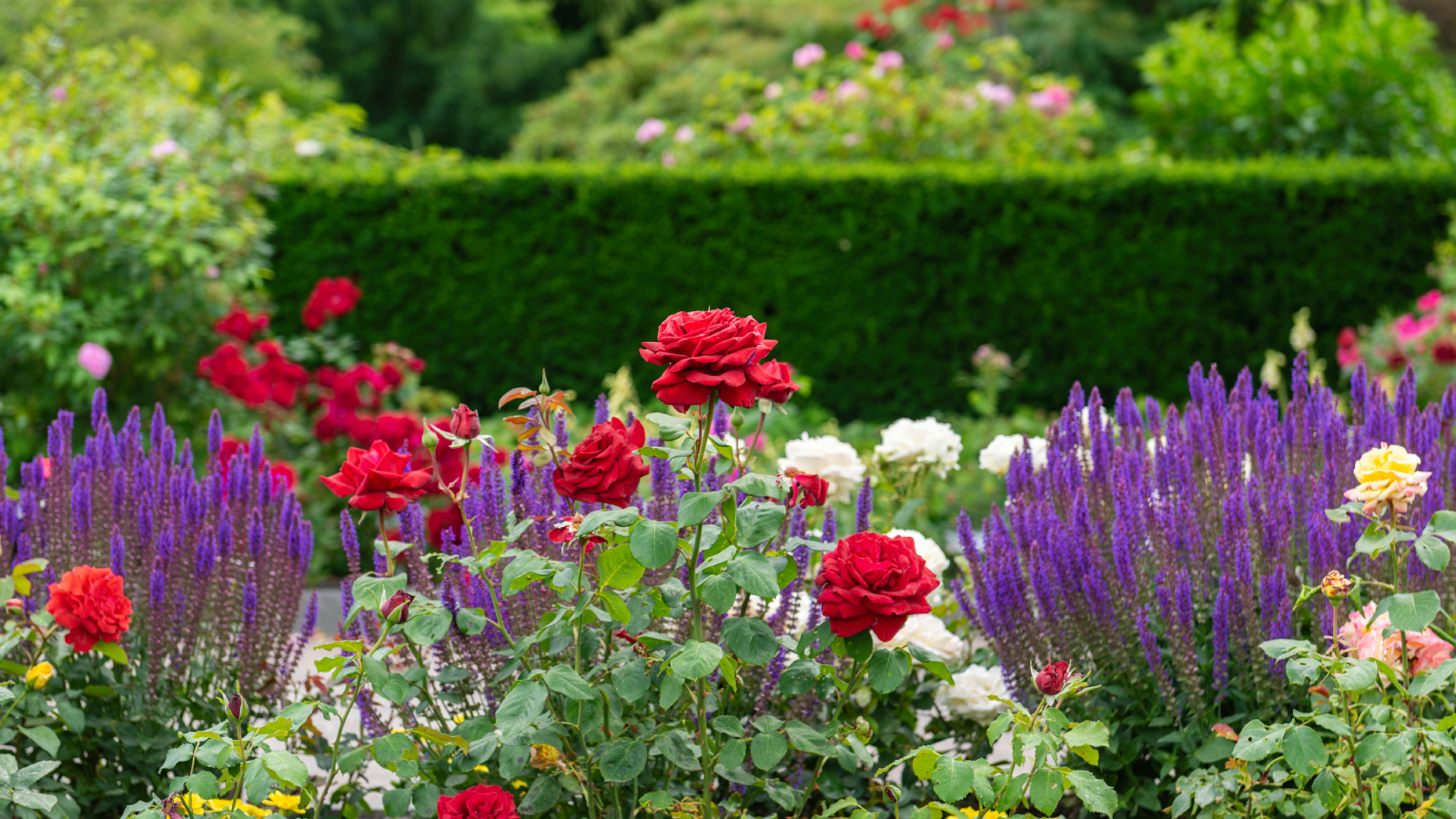
Sign up for the Gardening Know How newsletter today and receive a free copy of our e-book "How to Grow Delicious Tomatoes".
You are now subscribed
Your newsletter sign-up was successful
Black spot can sneak up on roses fast, if you're not careful. Its dark, splotchy marks thrive in damp, humid spots and can spread like wildfire, if left untreated. I’ve lost a few plants myself trying to fight it off, so I know it’s no picnic.
Gardeners are leaning hard into natural solutions these days, avoiding sprays that mess with the yard’s natural ecosystem. But is there a natural black spot remedy for roses? There's a surprising (and beautiful) natural cure that has potential: underplanting roses with salvia. This unique, eco-friendly trick is worth a look, especially with humid summer air fueling fungal trouble.
Many people are interested in companion planting for the benefits both plants receive. This includes using rose companion plants like salvia to stave off diseases like black spot on roses. Let's dig into whether or not this organic pest control method actually works and walk through how to try it in your garden.
What Is Black Spot?
Black spot disease on roses, which is caused by the tricky Diplocarpon rosae fungus, loves wet leaves and cool weather, making it a real challenge to tame. Once it takes hold, black spots grow, leaves yellow, and your rose’s strength fades.
I’ve seen it weaken a bush in no time. Traditional fungicides can work but leave me uneasy with their chemical load. That’s why underplanting with salvia has caught my eye as a greener option.
The idea is that salvia’s scent could possibly fight and prevent the fungus naturally, and with gardeners craving eco-friendly tricks, it’s a pretty hot topic. I’ve been using this trick in my own patch as I've learned how to grow roses over the years and it has worked wonderfully.
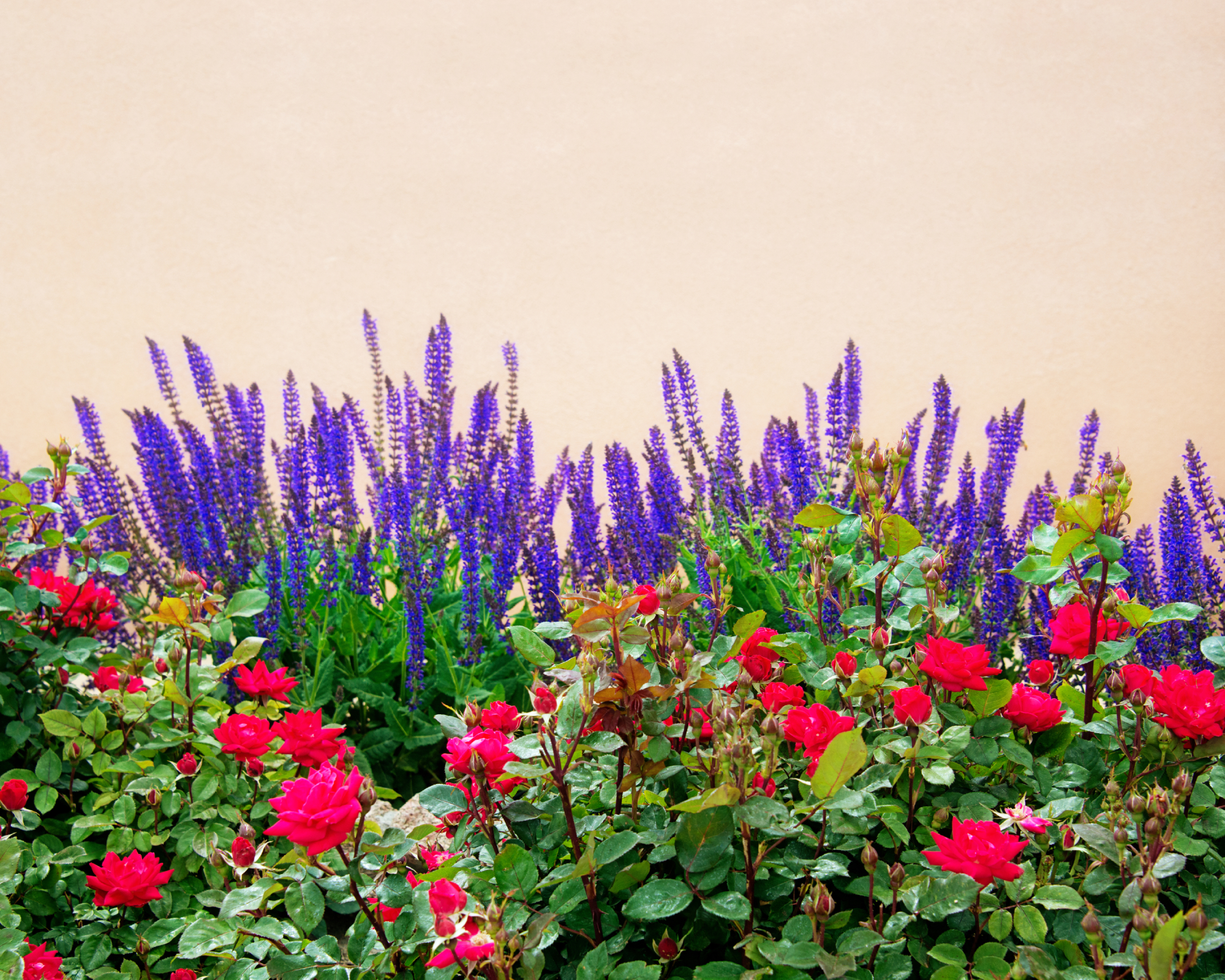
Benefits of Salvia for Roses
Salvia, also commonly called sage, are colorful flowers that can bring life to any garden. These beauties range from herbaceous types that die back in winter to shrubby ones that stick around all year. Many salvia varieties grow in USDA planting zones 4-9, though hardiness varies depending on the type.
Sign up for the Gardening Know How newsletter today and receive a free copy of our e-book "How to Grow Delicious Tomatoes".
I’ve got a few salvias in my yard. ‘Hot Lips’ salvia, which you can get on Amazon, is my favorite. It has drought-tolerant red and white blooms that shine in summer. They love sun and well-drained soil and flower from late spring to fall, drawing in tons of bees and butterflies.
Salvia's aromatic leaves give off a scent when they are warm and it’s that smell that folks think might help roses. I’ve noticed the fragrance perks up my borders nicely as well. Plus, learning how to care for salvia is pretty easy, too.
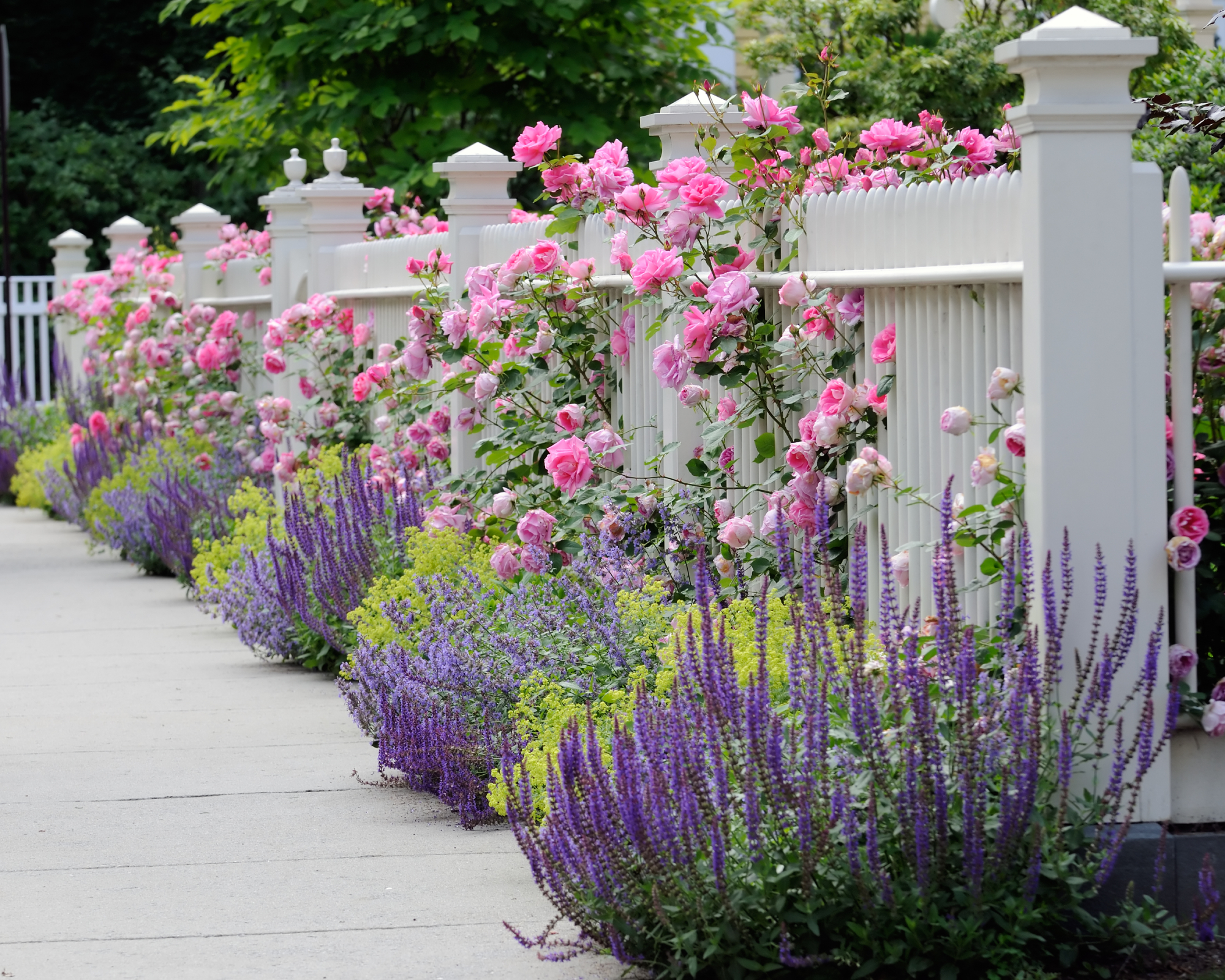
How Planting Salvia With Roses Prevents Black Spot
As I mentioned, the buzz around companion planting salvia and roses hinges on salvia's scent. When the sun heats up the aromatic salvia leaves they release oils with sulfur, which, according to the Duchy of Cornwall Nursery Journal, acts like a natural fungicide.
The theory goes that this wafts up through the rose bush, hitting black spot spores and slowing their spread. I’ve learned that the sulfur messes with the fungus’s ability to grow, and since black spot needs moisture to thrive, this could disrupt its cycle.
I tried tucking some salvia under my ‘Rhapsody in Blue’ rose, which you can get on last spring because the idea of using a living shield against black spot really clicked with me. It's natural, easy, and adds beauty to the garden.
Does This Natural Remedy Really Work?
The evidence of the efficacy of this method is a bit shaky, but intriguing. Some gardeners swear by planting salvia under roses, claiming fewer black spots on leaves. I’ve heard similar chatter from folks online.
The sulfur theory makes sense. Fungicides often use it, like this sulfur fungicide from Amazon that can help treat black spot on roses. But no big studies pin down using salvia to help roses specifically.
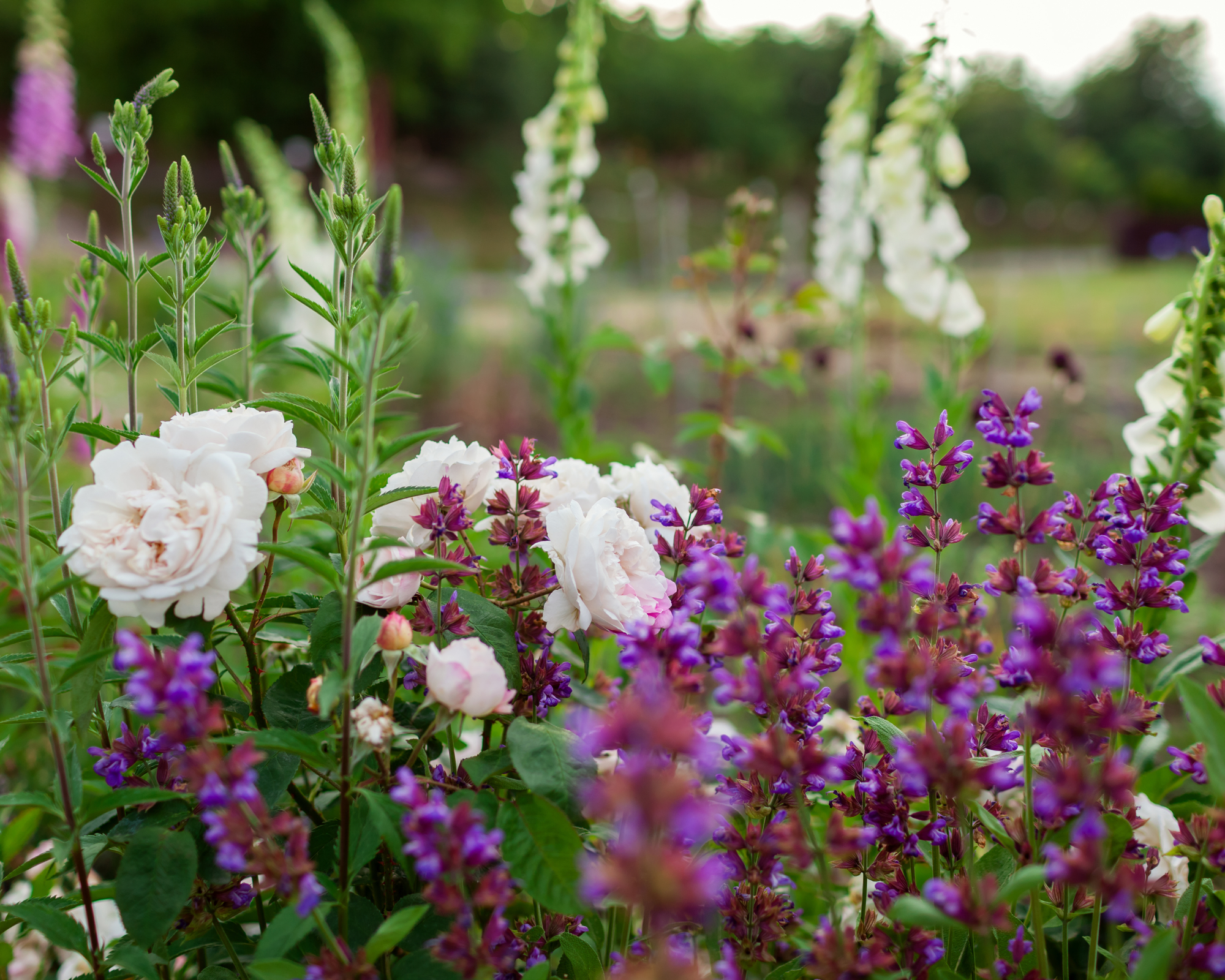
I’ve always noticed that my salvia-adjacent roses had far less spotting in the summer compared to the others. Though that could be due to better air flow or just simple luck.
Experts suggest that underplanting roses with salvia might help as part of a broader plan, not a solo fix. I keep testing it more each year to see if the pattern holds.
Pros and Cons of This Method
The upsides of this organic gardening hack are tempting. Salvia adds beauty, has a long bloom time, attracts pollinators, and might cut black spot naturally. All this, without the need for manufactured chemicals. I love how my yard looks with those pops of color from the salvia, too.
But this method isn't perfect. Salvia needs sun and well-draining soil, which might not suit every rose's growing needs. Plus, it won’t stop black spot if conditions are too wet.
I found my salvia struggled in a shady corner. But on the opposite end of the spectrum, overgrowth from large and lush salvia plants can crowd roses if you’re not careful. Salvia is a helper, not a hero, and I weigh that trade-off each season.
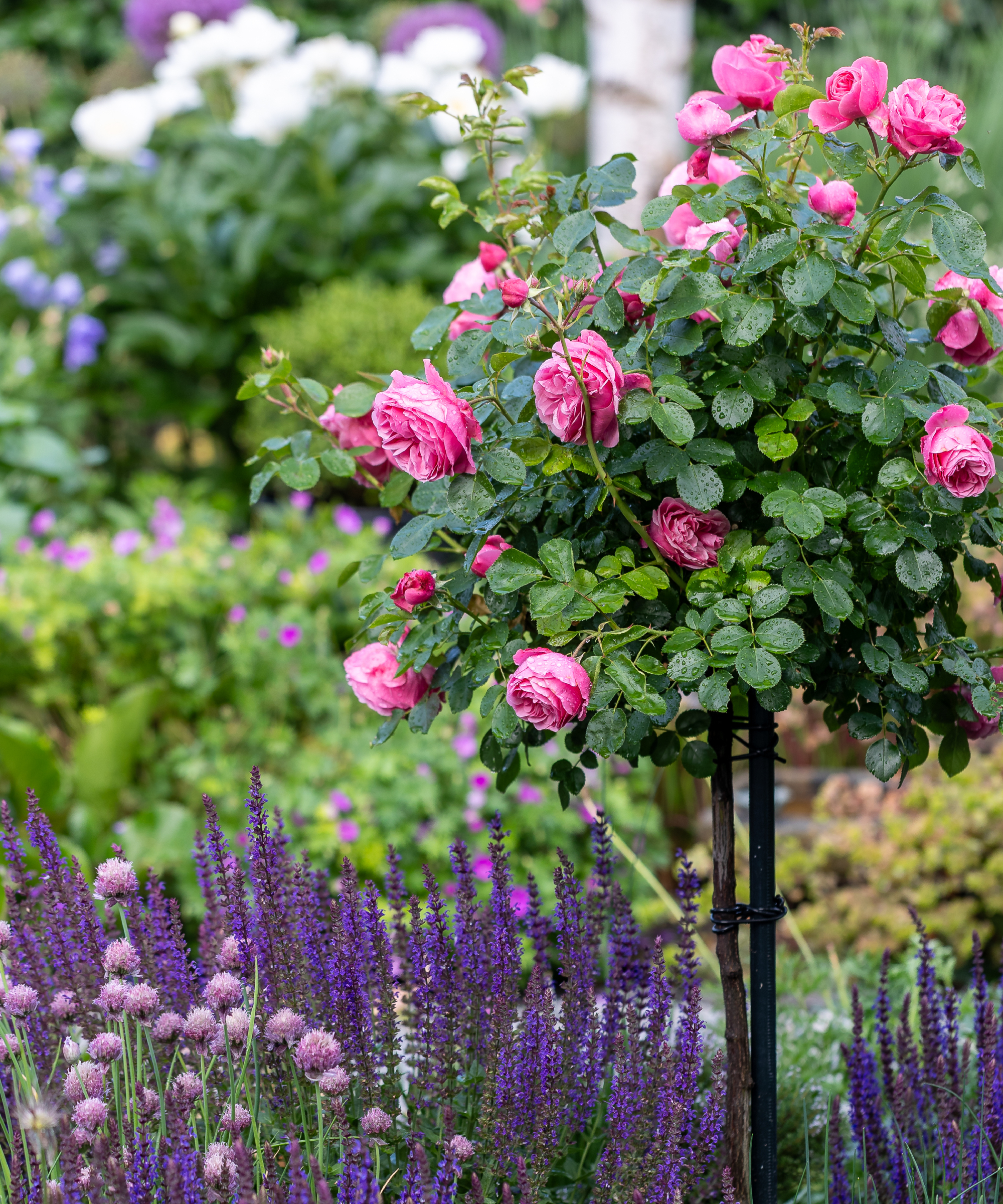
How To Try Underplanting Roses With Salvia
If you’re game to try, pick a sunny spot with well-drained soil. Add grit if soil is heavy, like I did. Choose a hardy salvia variety, like ‘Nachtvlinder’ or ‘Caradonna’, which you can get at Home Depot. Plant salvia in spring, spacing it about 1 foot (30 cm) away from your roses.
I mulch with organic matter in winter to smother spores and keep roots cozy. Trim back in spring when new growth starts and watch for overcrowding. You’ll want to give those roses room to breathe.
I’ve been doing this routine and it’s kept my rose bed looking great so far. Another kicker is that this isn’t just for roses. You can try this trick with most plants and there are many different combinations to play with.
More Natural Methods To Try
Don’t rely on salvia alone. Team it with other tricks. Clear fallen leaves in fall to ditch spores and prune for good air flow in spring using clean shears, like these from Amazon. Water at the base, not the leaves, especially in the morning, to keep things dry.
Natural remedies like baking soda sprays or Neem oil can boost defense. Picking black spot-resistant rose varieties helps, too. I have my favorite Neem extract that can be found on Amazon as well. Since I've mixed these methods with companion planting salvia, my roses are holding up better than ever!
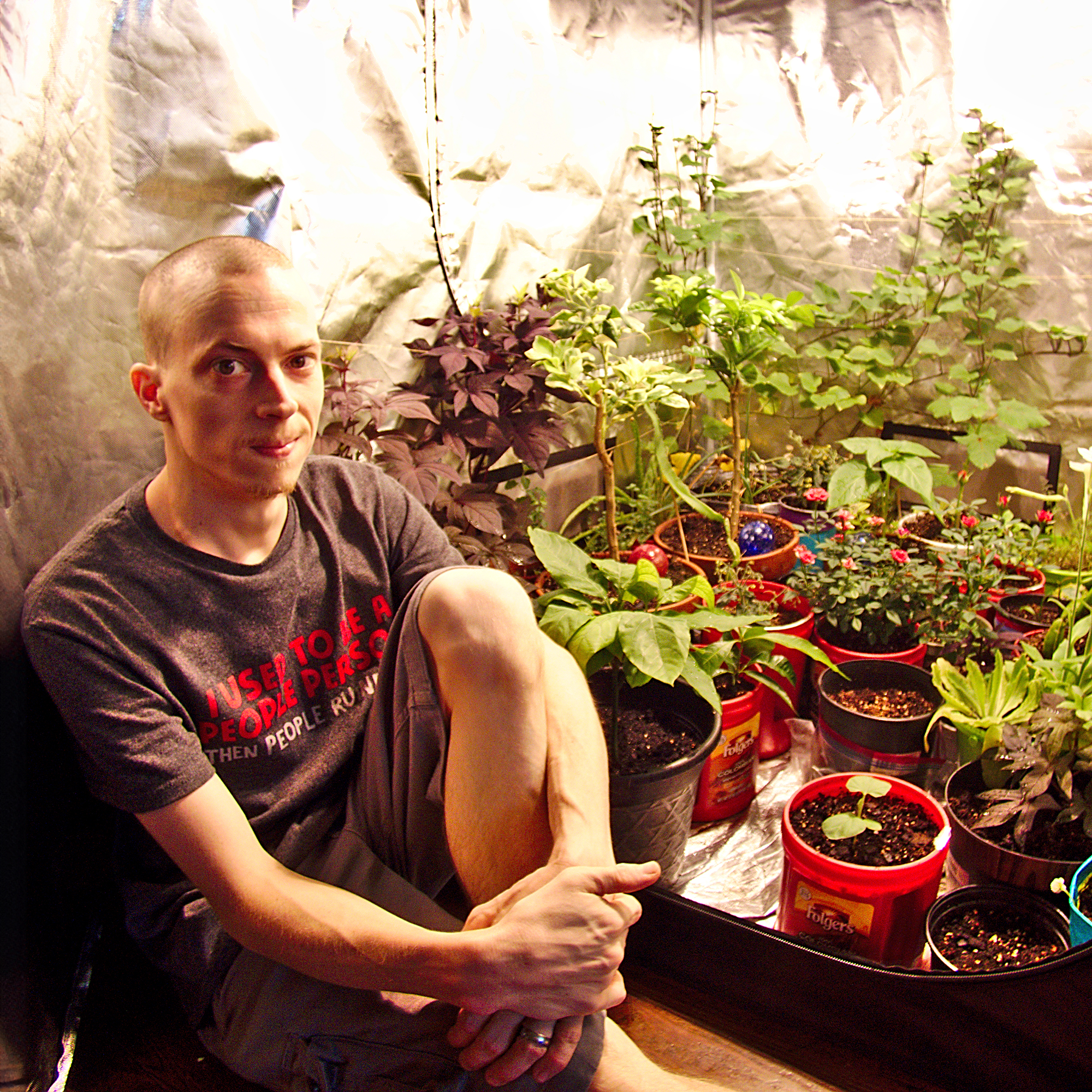
Tyler’s passion began with indoor gardening and deepened as he studied plant-fungi interactions in controlled settings. With a microbiology background focused on fungi, he’s spent over a decade solving tough and intricate gardening problems. After spinal injuries and brain surgery, Tyler’s approach to gardening changed. It became less about the hobby and more about recovery and adapting to physical limits. His growing success shows that disability doesn’t have to stop you from your goals.